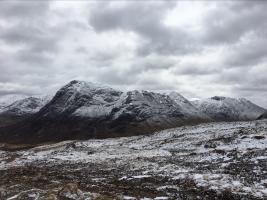George English, The 400th anniversary of the sailing of the Mayflower to America Thursday 20 May 18.45 chat 19.00 meet.
Thu, May 20th 2021 at 6:45 pm - 8:45 pm
George English, The 400th anniversary of the sailing of the Mayflower to America Thursday 20 May 18.45 chat 19.00 meet.

VOYAGE OF THE MAYFLOWER
Contemporary travel in Sudan was the topic of the previous talk to the Club. This week’s talk by Rotarian George English described a very different journey, that of the pilgrims who made the hazardous journey to America in the Mayflower in 1620. George, an expert on genealogy, said that celebrations for the 400th anniversary of the journey had been forestalled by the Covid pandemic. But it was important to recognise the significance of the voyage to the history of the United States of America. Who were these pilgrims, and why did they undertake the perilous crossing of the Atlantic?
George spoke of the consequences of two historical events that ultimately led to the decision of pilgrims to journey to the New World. The first was the declaration by King Henry VIII of himself as head of the Church in England; the second, the Reformation begun by Martin Luther. Each had a profound affect on the religious beliefs and observation in England, where some found themselves at significant variance with the established religious practices. Hounded by the authorities, and often facing persecution and jail, in 1608 and subsequently, many fled to Leiden in the Netherlands. Initially tolerated there, but with their future subsequently insecure, a number decided to seek a new beginning in what was then referred to as the New World – the Americas. In 1620, they chartered two ships, Mayflower and Speedwell. The latter proved unseaworthy for the voyage, with some of its passengers then seeking passage in the Mayflower. Eventually, Mayflower left Plymouth on 16 September 1620 with 102 passengers and a crew of about 30.
George vividly described the conditions endured by the passengers on the small ship. They were kept below deck for 66 days, with the ship battered by storms and blown off course, eventually landing 200 miles north of their intended destination. But their trials were just beginning: they were plagued by a lack of shelter, deciding to over-winter in Mayflower. Facing the hardships of the bitter weather, lacking adequate food, and with disease rampant, only 53 of the passengers and half the crew survived that winter. Indeed, it was largely owing to help from the local Wampanoag people that the outcome was not worse.
Recognising the need to establish guidelines for their new life, they agreed to settle and build a self-governing community. It was this Mayflower Compact that came to be regarded as an early model for the United States’ Constitution.
In October of the following year, 1621, Mayflower, having sailed back to England, returned with much-needed provisions; the celebrations, shared with some 60 native Americans, were the forerunner of what was to become Thanksgiving Day.
President-elect Russell Wheater said that George’s talk had given great insight into this fascinating aspect of history. The Club was very grateful to him.
'What We Do' Main Pages:
Our charitable activities are administered by a trust fund, registered as a Scottish charity, number SC050998. Annual reports and accounts for recent years can be downloaded below.
more
.jpg)






